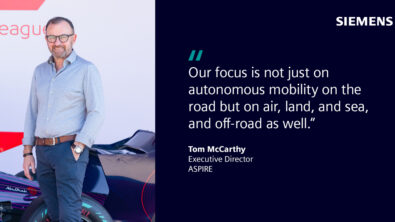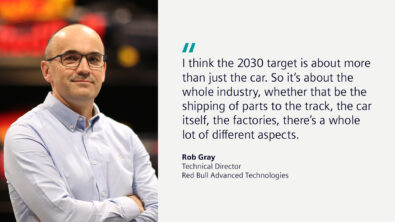Defining the software-defined vehicle – Ep. 6
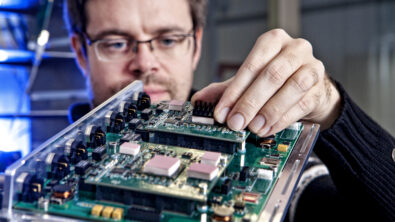
It’s time for another episode of On the Move: An Siemens Automotive podcast. We’ve found a new host and lined up some great conversations. In this episode, Michael Severson and Nand Kochhar (VP of Automotive and Transportation) sit down with two experts on the electronics and software that is taking over how we define a vehicle – Michael Munsey and David Fritz.
In this first part of three, we delve into the shift automotive manufacturers and the entire value chain is experiencing to deliver software-defined vehicles. Electronics and software might entail more learning, but it is fast becoming the best leverage tool to deliver enhanced vehicle functionality and performance. It’s time to learn how we are helping integrate software and semiconductor development into the Digital Twin for today’s modern vehicles.
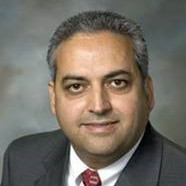
Nand Kochhar – Host
Nand Kochhar is the vice president of Automotive and Transportation Industry Strategy for Siemens Digital Industries Software. He joined Siemens in 2020 after nearly 30 years with Ford Motor Company, where he most recently served as Global Safety Systems Chief Engineer. In this capacity, Kochhar was responsible for vehicle safety performance of all Ford and Lincoln brand products globally. He also served as Executive Technical Leader, CAE, and as a member of Ford’s Technology Advisory Board. Kochhar’s tenure at Ford also included executive engineering leadership across a range of disciplines including in product development, manufacturing, digitalization, simulation technology development and implementation.
Kochhar has additionally been active in SAE International, where he has served as Chairman of the Executive standards committee, leader of a cross-industry group focused on driving standards for mobility, autonomous vehicle development, electrification and connectivity. Kochhar also served as Chairman of SAE’s Motor Vehicle Council for 2015-16 terms, after which he was named the Vice Chair of Technical Standards Board (TSB) in 2017 and then TSB Chair in 2018 and 2019.
Kochhar graduated from Missouri University of Science and Technology (Missouri S&T) with a master’s degree in Engineering Mechanics. He was inducted as a member of the Academy of Mechanical and Aerospace Engineers at Missouri S&T in 2005. He lives in Northville, Michigan with his wife and two kids.
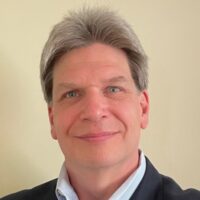
Michael Munsey – Guest
Michael Munsey is the Vice President of Electronics & Semiconductors for Siemens Digital Industries Software. In this role, Munsey is responsible for setting the strategic direction for the company with a focus on helping customers drive unprecedented growth and innovation in the semiconductor and electronics industries through digital transformation.
Munsey began his career as a designer at IBM more than 35 years ago and has the distinction of contributing to products that are currently in use on two planets: Earth and Mars, the later courtesy of his work on the Mars Rover.
Before joining Siemens in 2021, Munsey spent his career working in positions of increasing responsibility across the semiconductor and electronics industries where he did everything from leading cross-functional teams to drive product creation and executing business development in new regions to setting the vision for corporate strategy. Munsey holds a BSEE in Electrical and Electronics Engineering from Tufts University.
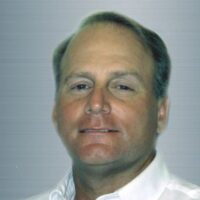
David Fritz – Guest
With over 25 years of experience in the Semiconductor industry having held senior technical roles at NVidia, Qualcomm, Texas Instruments, and others, Mr. Fritz is the Vice President of Hybrid and Virtual Systems leading the global autonomous IC and validation initiative at Siemens EDA. Mr. Fritz brings innovation of fast moving Silicon Valley companies to the Siemens EDA team by applying transformative technologies to the challenges of autonomous and connected vehicles.
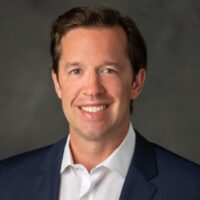
Michael Severson – Moderator
Mike Severson is a Senior Automotive Marketing Manager for Siemens Digital Industries Software, where he drives the achievement of the company’s strategic automotive objectives. He joined Siemens in 2022 after nearly 15 years with Ford Motor Company. During his tenure at Ford, he held several key positions in which he developed and executed initiatives to drive innovation, deliver business results, and enhance the customer experience. In his most recent role at Ford, he served as the Ford GT Program Manager, where he launched and marketed high-value vehicles and designed luxury customer experiences. He also served as the Technology Marketing Manager, collaborating with key technology partners to drive monetization and introduce industry-first technologies.
He graduated from the University of Washington Foster School of Business in Seattle, Washington, and currently lives in the Detroit Metro area with his wife and daughter. In his free time, he enjoys riding motorcycles, snowboarding, and attending concerts.
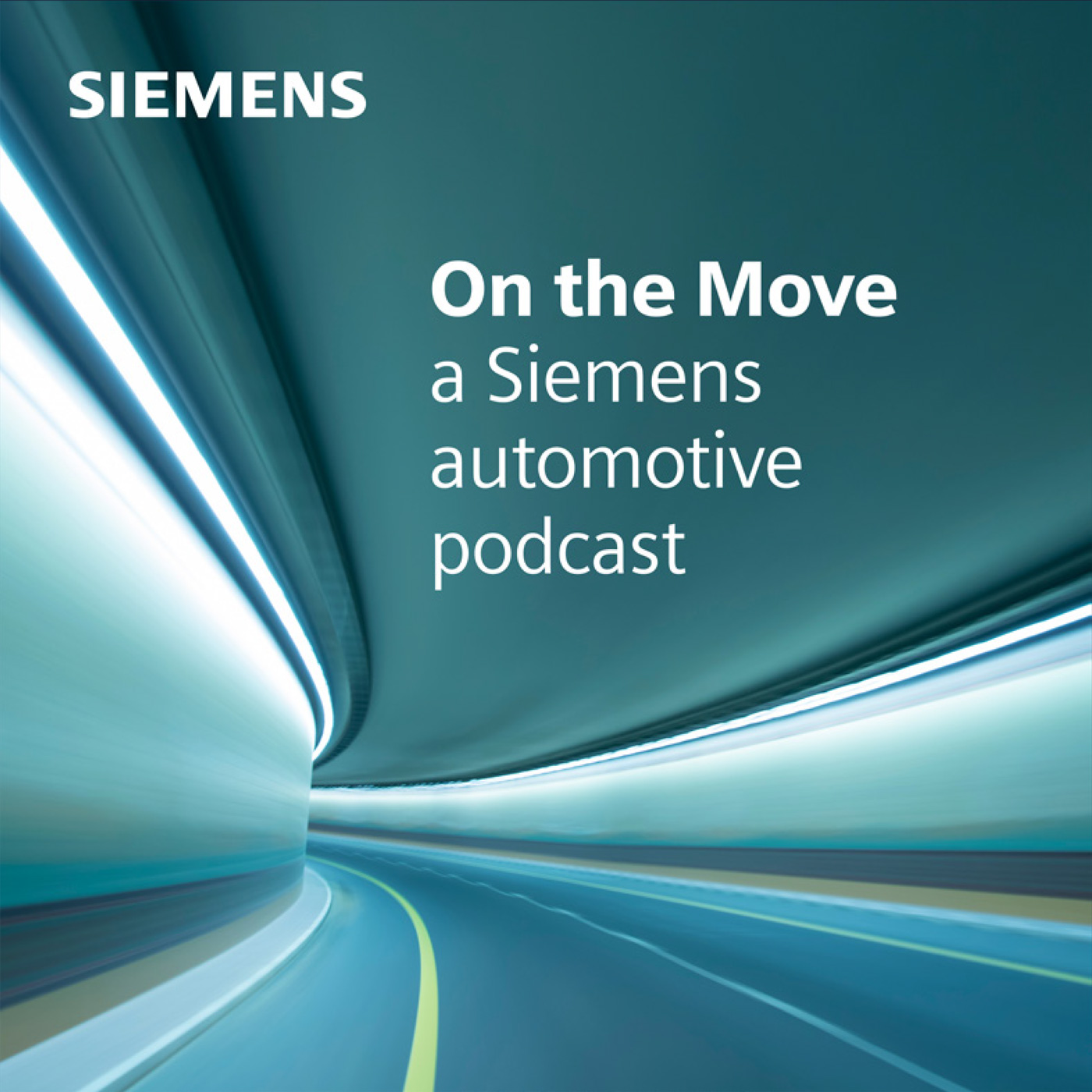
On the Move: A Siemens Automotive Podcast
The automotive and transportation industries are in the middle of a transformation in how vehicles are designed, made, and sold. Driven by an influx of new technologies, consumer demands, environmental pressures, and a changing workforce in factories and offices, automotive companies are pushing to reinvent fundamental aspects of their businesses. This includes developing more advanced and capable vehicles, identifying new revenue sources, improving customer experiences, and changing the ways in which features and functionality are built into vehicles.
Welcome to On the Move, a podcast from Siemens Digital Industries Software that will dive into the acceleration of mobility innovation amid unprecedented change in the automotive and transportation industries. Join hosts Nand Kochhar, VP of Automotive and Transportation, and Conor Peick, Automotive and Transportation Writer, as they dive into the shifting automotive landscape with expert guests from Siemens and around the industry. Tune in to learn about modern automotive design and engineering challenges, how software and electronics have grown in use and importance, and where the industries might be heading in the future.
